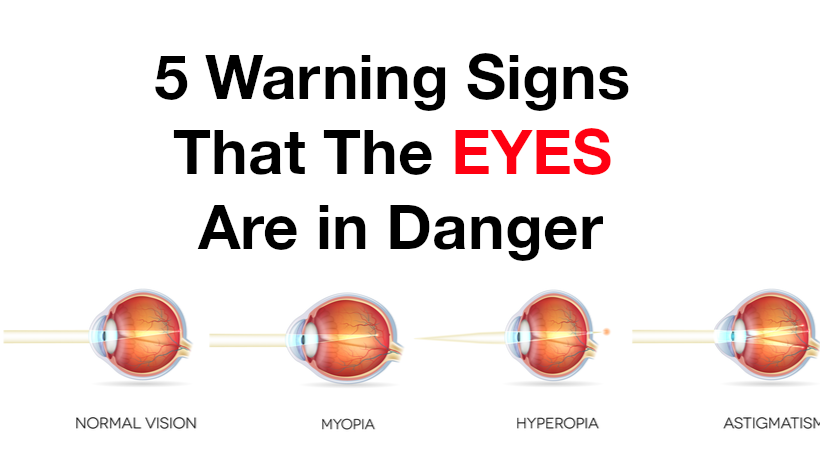There are many different signs that can detect whether your eyes are in danger. With age, the eyes’ ability to stay lubricated starts to wane, according to Harvard Health Publishing. This leaves the eyes feeling irritated, sticky, dry, or gritty. The lens of the eyes can also become less elastic. According to WebMD, there are many eye problems to watch out for, such as macular degeneration, glaucoma, and cataracts. What are the signs that your eyes can be in danger?
Flashing lights, floaters, or a gray shadow in your vision
The sudden onset of flashing lights, an increase in of floaters, a shadow in your peripheral vision, or a gray curtain moving across your field of vision could be signs of a detachment of the retina, which is the nerve layer in the back of the eye that sends images to the brain, according to the website Everyday Health. Floaters are described as cobwebs, spots, or strands that float around your field of vision, states the National Eye Institute. Eye diseases such as glaucoma are among the causes of retinal detachment. Most of the time, a few eye floaters are not dangerous; however, if you notice a sudden onset of eye floaters or many more than usual, contact an eye specialist immediately.
Sudden loss of vision in one eye
Sudden loss of vision in one eye can actually be indicative of multiple eye issues. According to Everyday Health, one of the issues that loss of vision can lead to is age-related macular degeneration or AMD, which is a leading cause of vision loss in people 65 and older in the United States. Vision loss caused by AMD can be gradual and in other cases, it can be sudden. It is when blood vessels in the eye leak fluid or blood under the retina, which is made up of nerve cells that allow you to see.
Another cause of sudden vision loss could be a type of glaucoma, which leads to a rapid buildup of fluid pressure in the eye that damages the optic nerve, states Everyday Health.
Blurred vision
Blurred vision usually means that you just may need glasses; however, other issues may be happening. According to Women’s Day, not only can blurred vision signal a medical problem with the eye itself (like cataracts or macular degeneration), it can also be a sign of a more serious illness like diabetes. Type 1 and Type 2 diabetes are associated with blurred vision, states Type2Diabetes.com, an informational website about the disease. Blurred vision typically occurs after an abrupt change in blood glucose resulting in a change in osmotic pressure within the eye. Blurry vision may worsen initially even after you have taken steps to control your blood glucos, because a rapid correction in blood glucose will cause a further change in osmotic pressure within the eye. If you experience this symptom, work with your doctor to correct your blood glucose.
Eye pain
Some conditions or injuries can result in eye pain, states Everyday Health. Eye pain can also be caused by glaucoma, dry eye, an eye injury, a scratched cornea, or even cancer of the eye.
Persistent discomfort in the eye
If you experience any discomfort in your eye after doing an activity in which a small particle could have entered your eye, such as hammering or working under a car, according to Everyday Health. Make sure to have your eyes checked out by a doctor to make sure that you don’t have a foreign particle in the eye, which can cause an infection.
Sources:
https://www.webmd.com/eye-health/common-eye-problems
https://www.health.harvard.edu/diseases-and-conditions/warning-signs-of-a-serious-eye-problem
https://www.everydayhealth.com/vision-center/9-serious-vision-symptoms-to-watch-out-for.aspx
https://www.everydayhealth.com/columns/paging-dr-gupta/what-are-eye-floaters-and-are-they-dangerous/
https://nei.nih.gov/
https://type2diabetes.com/symptoms/blurred-vision/
https://www.womansday.com/health-fitness/g2940/what-eyes-say-about-your-health/?slide=12



